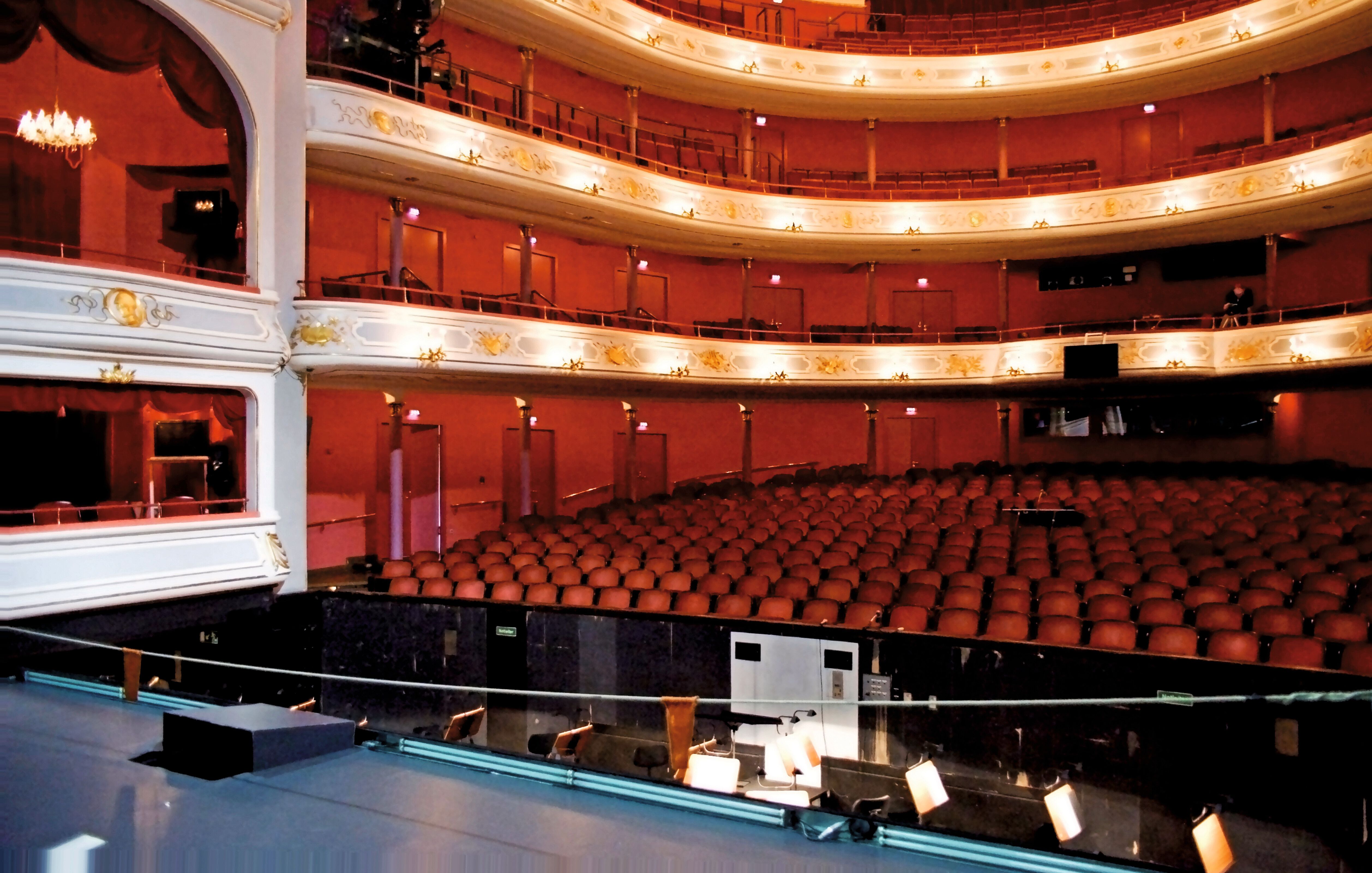Drama, dance, film, television
In this field of study, in addition to the joy of slipping into other roles and inspiring people, the willingness to be in the spotlight, to lead the camera or to ‘pull the strings’ behind the scenes is also important.

Overview of the academic discipline
This area includes the performing arts such as drama, puppet theatre or dance as well as theoretical, scientific and production-oriented courses such as theatre studies, film and television production or theatre pedagogy.
Training in the performing arts focuses on the development of physical, vocal and linguistic expression. Students can gain practical experience in workshop productions and performances.
When studying directing or dramaturgy, the focus is on developing productions, working with actors and on organisational tasks.
Theatre, film and television studies provide a more theoretical approach, while theatre pedagogy deals with practical theatre work.
Production technology programmes, on the other hand, prepare students for a career in production and management in the audiovisual media sector.
Which topics are included in the curriculum?
The field of performing arts includes courses such as acting, puppet theatre and dance. The curriculum includes modules such as visual design, performing speech, theory/dramaturgy, voice training/singing, stage combat or body awareness methods.
In the directing programme, the modules include dramaturgy, stage technology, stage design, lighting, costume design, acting/movement and art history.
Theatre studies cover modules such as theatre history, the basics of theatre, staging history, public and media culture or the basics of performance analysis.
In theatre pedagogy, on the other hand, the focus is more on didactics, introduction to breathing, posture, voice and speaking technique, body awareness and application expression, directing and stage management.
Students who opt for a degree programme in the field of film and television production will study modules such as film shooting, film editing, media financing, media law, post-production, sound design and project development.
Admission to courses in this field requires a university entrance qualification and the passing of an aptitude test (exception: theatre, film and television studies at universities). If someone has exceptional artistic talent, proof of higher education entrance qualification may be waived.
What are the requirements?
Knowledge of the following school subjects is helpful for studying in this sub-field of study: German, art, music, sport, foreign languages.
What study programmes are there to choose from?
The degree programmes in this sub-field of study are, for example: Film/Screenwriting, Dramaturgy, Puppet Theatre, Film/Cinematography, Motion Pictures, Production Management Film and TV, Directing, Theatre, Film and Media Studies.
What job opportunities are there after graduation?
Graduates of the stage dance, musical, acting, directing and make-up design courses work for public and private theatres, touring theatres and independent theatre groups, and sometimes also for film and television.
Theatre educators can be found at theatres and various educational institutions such as kindergartens and schools.
Theatre, film and television scholars work (freelance or employed) at theatres and opera houses, mainly as dramatic advisors or in the field of public relations. At film studios, television and radio stations, they work in many functions, e.g. as dramativ advisors, editors, proofreaders, producers, in media impact research, as freelance publicists, etc. Other fields of activity can be found in libraries and archives, at universities, academies and (art) colleges, in adult education institutions, art associations, in public or private cultural administrations, at publishing houses, newspapers and magazines.
